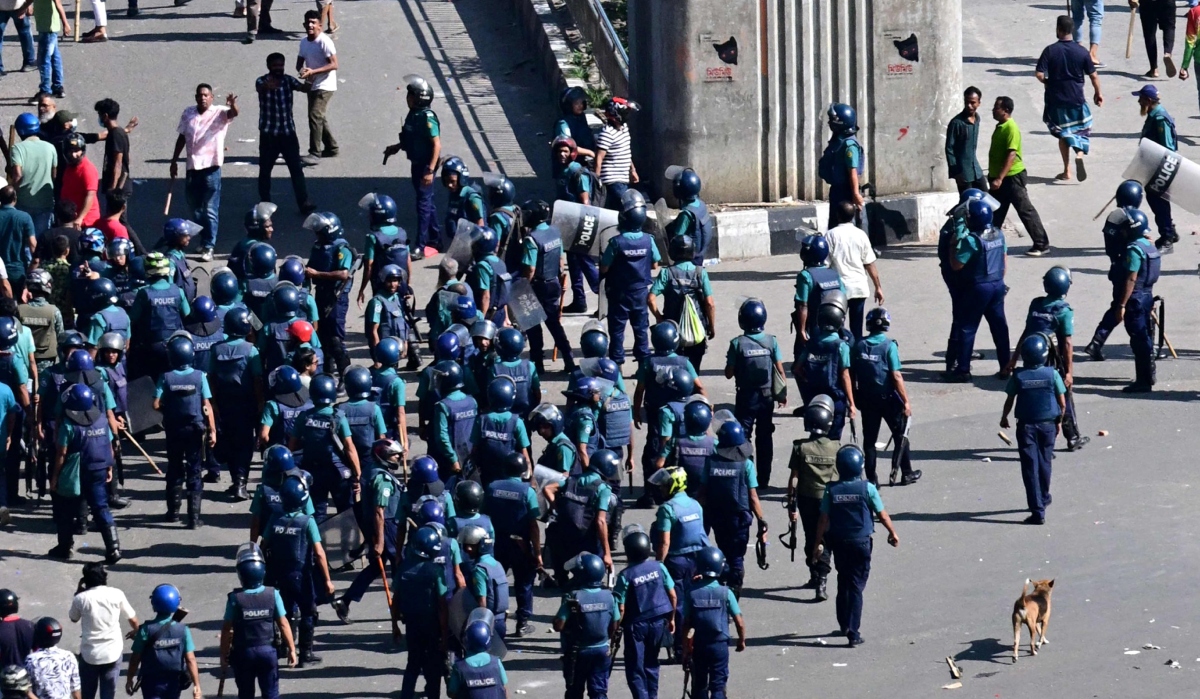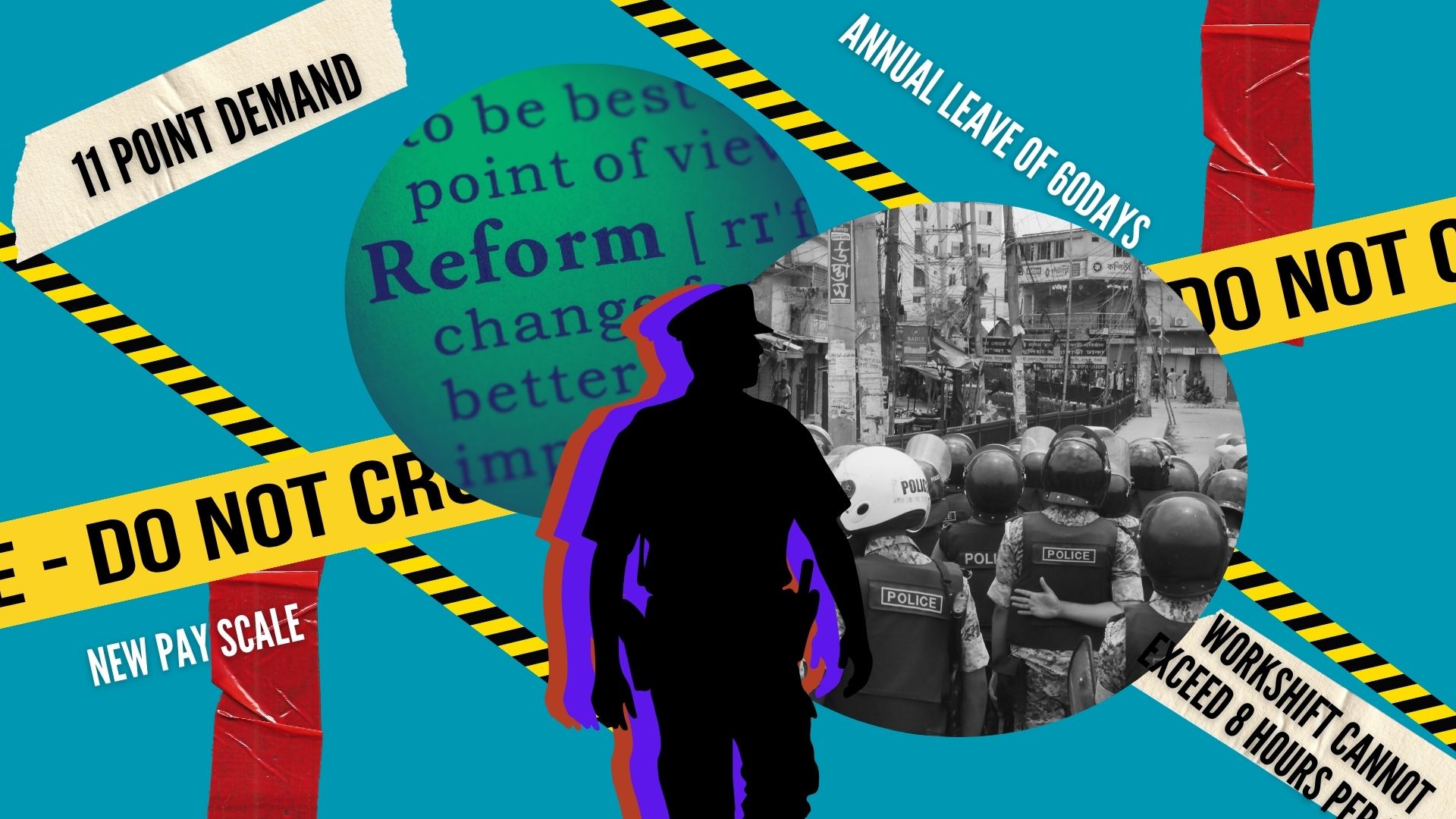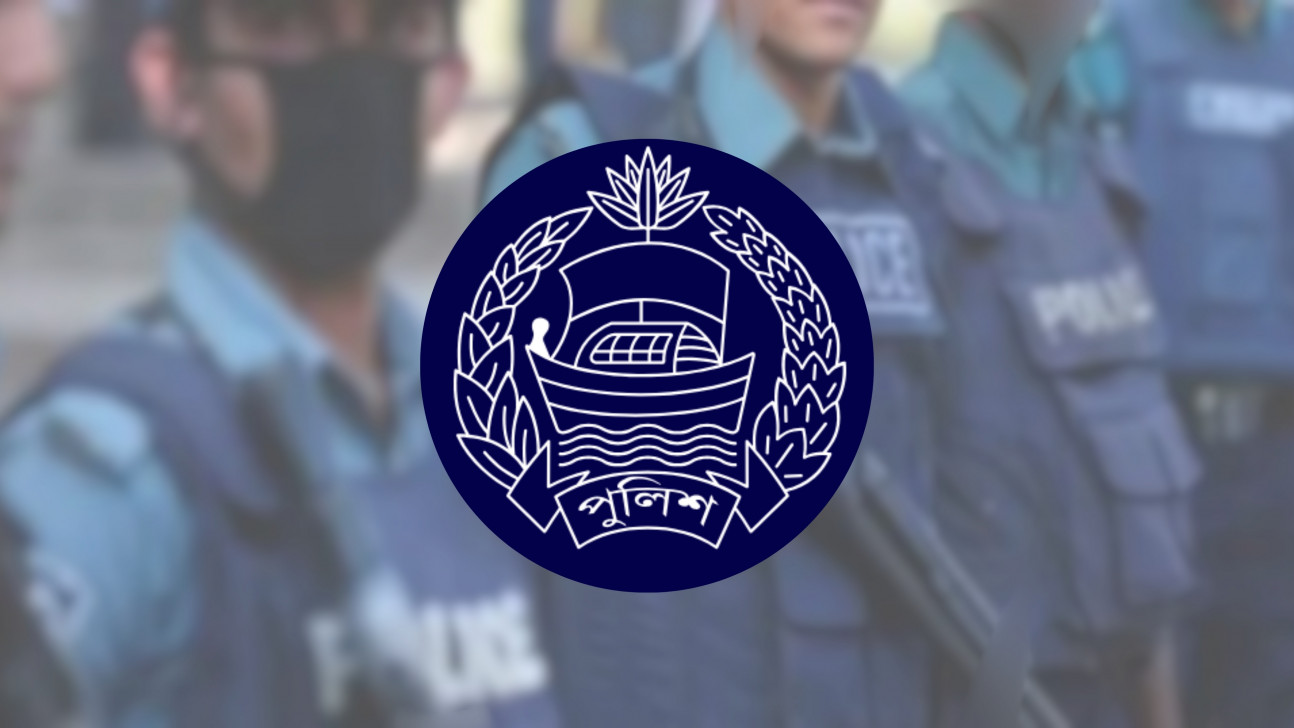Police struggling to get back on their feet

In the beginning of the year, the police were accused of being a tool implementing "Sheikh Hasina's engineered election", then they became the heavy hand attempting to crush the mass uprising. Days after Hasina's ouster, the force appeared to have disintegrated. And now, they are trying to gain public trust in combating crime.
Although senior police officials refreshingly admit their shortcomings and promise better days ahead, the challenges facing the force are steep.
Many officers have been transferred for their alleged role in backing the Awami League regime.
A large number of those who replaced them have no experience in working in crime divisions, resulting in the sluggishness of the force's transition into what the people desire.
Home Adviser Lt Gen (retd) Jahangir Alam Chowdhury acknowledged this on several occasions over the last few months. He said it would take the police some time to become acquainted with the alleys of Dhaka. The police members would need time to build an intelligence network before they could become effective crime fighters.
The police are dealing with multiple problems.
Equipment deemed essential, like teargas canisters, stun grenades, transport vehicles, and walkie-talkies, which were damaged or destroyed during the uprising, have not all been replaced.
Over 450 of the country's 664 police stations were attacked and some of them were set on fire.
Abdul Malek, inspector (investigation) of the Adabor Police Station, said, "Everything was burnt, including patrol cars, furniture, case dockets, and walkie-talkies … .
"We have so far received two patrol cars, some furniture and weapons, but these are not enough ... We are trying to do the job with what we have," he said.
According to the Police Headquarters database, 5,750 police firearms and 6,51,609 bullets were looted during the uprising. The weapons and ammunition include small machine guns, light machine guns, pistols, shotguns, gas guns, teargas launchers, and tear gas shells.
Even though a joint operation launched on September 4, a total of 1,419 weapons and 2,63,153 bullets were yet to be recovered, as of December 3.
On top of this, around 700 convicts who escaped from prisons during the uprisings remain at large.
However, Adviser Jahangir recently said, "Initiatives have been taken to revive police activities. I hope everything will go well. Change takes time, I cannot alter the morale within two days. It requires patience."
UNDER PREVIOUS REGIME
In January 2024, law enforcers, including the police, were busy completing the parliamentary elections, which the BNP and Jamaat boycotted.
Badiul Alam Majumdar, secretary of Shushashoner Jonno Nagorik, said, "There is no doubt that the police played a questionable role during the last general election, but the level of their complicity varied by location. At some places they played a neutral role and at some others, they acted with vested interest."
Hasina's government faced persistent criticism for allegedly politicising and compromising the independence of the police force to consolidate power and suppress dissenting voices.
Over the years, reports have detailed how the police have been used as a tool to silence voices, restrict free speech, and maintain control over the political landscape.
These not only undermined the integrity of police, but also eroded public trust in law enforcement agencies.
The police were used for targeting the opposition parties, especially the BNP and its allies. Opposition leaders and activists were arrested frequently and charged in what the critics say were politically motivated cases.
UPRISING
At the fag-end of Hasina's rule, the police were deployed against unarmed protesters, resulting in hundreds of deaths.
Following the indiscriminate shooting and killing of protesters and the ouster of Hasina, numerous police members, including top officials, went into hiding fearing the public wrath.
For weeks after August 5, the police were not on the ground in the true sense. Various types of crimes including theft, robbery, and extortion became rampant.
Neighbourhoods were protected at night by students armed with sticks.
Despite efforts by the interim government to stabilise the force, crime statistics from the Police Headquarters (PHQ) reveal an uptick in certain offences.
At least 464 robbery cases were filed between August and November. The number was 395 in the corresponding months of 2023.
Murder cases showed a particularly striking disparity. At least 1,937 murder cases were filed during these months this year. In the same months of 2023, a total of 976 murder cases were filed.
The Chief Adviser's Press Wing, citing PHQ data, recently said the higher numbers of cases filed in September, October, and November this year was due to those being filed over previous incidents.
Tawohidul Haque, associate professor at the Dhaka University's Institute of Social Welfare and Research, explained that the police continue to have a crisis of morale due to their controversial role during the uprising.
"At the same time, criminals are taking advantage as police are hesitant to take immediate action. But this cannot be allowed to continue," he said.
Enamul Haque Sagor, assistant inspector general at the PHQ, told The Daily Star, "One of the prime challenges is restoring operational activities. Initially, we focused on relaunching 999 services and restarting police stations' work in rented buildings, as many stations were damaged. Now, the police chief is holding meetings with field officials to improve law and order and intensify operations to recover firearms."
Sagor added, "Our aim is to reduce crime, and hopefully the new year will be a good one for safety and security."
INSECURITY
Dhaka Metropolitan Police Commissioner SM Sazzat Ali, speaking at a programme on December 21, warned that mugging incidents have increased recently and that the muggers mainly target mobile phones.
At the programme, he told foreign students to exercise caution when using mobile phones. "As per the reports I have got, mugging incidents have increased recently, and muggers mainly target mobile phones," he said.
On December 15, Home Adviser Jahangir Alam Chowdhury also said muggings have increased in the city and that such incidents occurred mainly in the early hours.
The fear of such crimes has had an impact on businesses.
An owner of a coffee shop in Gulshan blamed the poor presence of police on the streets for him losing half of his customers. "People are not coming out of their homes after sun down as they used to.
"Usually, we close the shop after midnight, but many of our customers have complained about theft from their cars parked on the streets near the shop," the owner said.
The owner of a confectionery chain with 25 outlets reported a 35 percent drop in sales, particularly in the evenings.
On police not being seen on the streets at night, Assistant Inspector General Sagor said, "We may be able to provide a proper answer if a specific area is mentioned, but it cannot be said that there are no police at night.
"We are currently gathering equipment and providing necessary support to police units to conduct operations and ensure services. The procurement of equipment is an ongoing process."




 For all latest news, follow The Daily Star's Google News channel.
For all latest news, follow The Daily Star's Google News channel. 


Comments